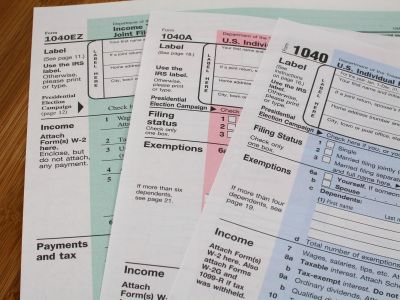
Here, at Luh & Associates, our experienced bankruptcy attorneys have answered many of these “Top 10” questions for Las Vegans like yourself about filing bankruptcy in Nevada. While every bankruptcy is different, there are many common concerns that clients can have as they consider filing bankruptcy. If you don’t see your particular question listed here or don’t fully understand an answer, don’t worry, as always, we are available to answer any additional questions, either by phone, email, video conference, or here through our website’s chat function.
- How long does bankruptcy take?
Generally, a Chapter 7 bankruptcy will be discharged (and the dischargeable debts will be erased) four months (120 days) after the bankruptcy petition has been filed.
The date the client files their petition can vary depending on a client’s needs. Some clients need a petition filed quickly in order to avoid the actions from a judgment or garnishment going into effect (or continuing to take effect, in a garnishment’s case). In these situations, it may be best that a client bring as much information as possible, including bills, bank statements, and paystubs, to their initial consultation so their petition can be drafted quickly and correctly.
Some clients may need to wait to file a Chapter 7 bankruptcy. Because a client’s last six months of income are considered, those who are recently unemployed may still have too much income to qualify for a Chapter 7 bankruptcy. We can prepare a client’s petition in the meanwhile, so they can file as soon as they are ready to do so.
An attorney can best guide a client to knowing which timeline is right for them.
- What happens after a bankruptcy petition is filed?
There are two major events that happen after a Chapter 7 bankruptcy petition is filed and the automatic stay goes into effect: The 341 Meeting of Creditors and the Discharge.
The 341 Meeting of Creditors happens around thirty days (give or take ten days) after a client files their bankruptcy petition. This is the meeting where the client (and their attorney) meet with the bankruptcy trustee and any creditors who attend the meeting. The trustee proceeds to ask questions of the client to understand their situation and why they are filing for bankruptcy. Creditors who attend are also able to ask questions of the client, but most of the time, the questions are asked by the trustee alone. After this meeting, the trustee and creditors have thirty days to file objections against any property claimed as exempt and sixty days to file an objection to the discharge.
* Note: In light of the current COVID-19 pandemic, a client’s 341 Meeting of Creditors will now be conducted via videoconference. If a client needs assistance attending this videoconference, our attorneys are happy to help make arrangements.
If no objections are filed, the client will then receive the discharge order. This often happens around ninety days after the 341 meeting of creditors. Once the discharge order is entered, the dischargeable debts are cleared and the client no longer needs to pay those creditors.
- Can I change my mind after filing Chapter 7 bankruptcy?
In most cases, no. A Chapter 7 bankruptcy can’t be dismissed unless the debtor can show good cause to do so. Showing good cause is very difficult and the bankruptcy trustee and creditors will likely disagree on whether the client’s reason to dismiss a case is “good cause.”
A situation that is more likely to happen is converting a Chapter 7 bankruptcy into a Chapter 13 case. This would allow for a debtor to keep any property they discovered to be non-exempt (and thus subject to seizure) in their Chapter 7 case and instead create a repayment plan to satisfy their creditors. This is, however, subject to the bankruptcy trustee’s discretion and a move that should be discussed with your attorney before undertaking.
Filing Chapter 7 bankruptcy is a serious decision and should not be undertaken lightly. Let our experience attorneys guide you in the decision.
- Can my Chapter 7 bankruptcy be revoked after it has been discharged?
While this is rare, it is a possibility. A trustee will liekly try to revoke a discharged case if fraud is discovered after the discharge was granted or if the debtor failed to disclose any assets they knew they would acquire after their discharge. A discharge can also be revoked if the debtor refuses to obey court orders or fails to respond adequately to a bankruptcy audit.
To get a discharge revoked, a creditor (or the bankruptcy trustee) would file a complaint. That debtor would then have the opportunity to respond and both parties would need to go to court to have the matter resolved.
The key to avoiding this situation, and to a good bankruptcy overall, is full disclosure. Alert your attorney to any problems you foresee arising from your financial situation and they will assist you in how to navigate with them throughout your bankruptcy process.
- Does a Chapter 7 bankruptcy stop a wage garnishment?
In most cases, yes. When a bankruptcy petition is filed, an “Automatic Stay” goes into effect. This stay puts a stop to creditors collecting on debts for a limited time while the bankruptcy is pending. If the debt is later discharged, the creditor cannot collect against it.
If a debtor decides to go forward with a bankruptcy, they would want to inform the creditor and their employer as soon as the bankruptcy petition is filed with the court. The sooner their employer is aware of the bankruptcy matter, the sooner the garnishment can stop.
A bankruptcy won’t stop all garnishments, however. Domestic support obligations, such as alimony or child support, certain types of tax debt, and other non- dischargeable debts can still be garnished after a client has filed their Chapter 7 petition.
If for some reason, the creditor tries to continue a wage garnishment, that creditor may face liability for damages to debtors for automatic stay violations. Damages include actual damages, punitive damages, attorney’s fees and costs. These violations can also include a creditor that continues to make harassing telephone calls after your bankruptcy petition is filed.
- Does a Chapter 7 bankruptcy stop a judgment?
In most cases, yes. If the judgment is for a debt that is dischargeable in a bankruptcy, then filing for bankruptcy will stop the creditor from using the judgment to collect against the debtor.
A judgment, however, can allow a creditor to place a lien on a debtor’s home or other property, and these liens are not erased with a bankruptcy alone. The sooner a debtor files their bankruptcy after receiving a judgment, the more likely they are to avoid having a lien placed on their home. In some cases (but not all), it is possible to remove a lien if the property’s equity falls under one of Nevada’s bankruptcy exemptions. If a debtor finds themselves with a lien on their property due to a judgment against them, they should discuss the possibility of lien avoidance action with a bankruptcy attorney.
- Does a Chapter 7 bankruptcy eliminate all debts?
A Chapter 7 bankruptcy can take care of many different debts that impact a client’s life. Debt from medical expenses, credit card charges, past due utility bills, and several other sources can overwhelm a person and make them seek relief. While bankruptcy can be helpful in many cases, there are certain debts that cannot be discharged through the Chapter 7 process.
Most important, a debt cannot be discharged if it is never listed on your bankruptcy petition in the first place. While it is possible to amend a petition, we urge our clients to avoid this step by making sure their draft is as complete and accurate as possible, including the listing of every creditor they have.
Also, any debt incurred after a client has filed their bankruptcy petition will not be discharged. A client may be facing this issue if they are burdened with medical debt and are still being treated by medical professionals. If they file their petition before their treatment is complete, the bills incurred after the petition’s filing date (or any bills not listed in the petition) will not be discharged, even if it’s for the same medical issue. This also applies to recurring utility bills. A mounting past due utility bill may be forgiven, but the recurring charges after the filing date are still due.
With regards to student loans, the debt must be proved as an undue hardship to the bankruptcy trustee. This makes the discharge of student loan debt, while technically possible, extremely rare to obtain.
Other debts that a Chapter 7 bankruptcy won’t discharge are domestic support obligations (like child support or alimony), fines or restitution from a criminal proceeding, court fees from a criminal proceeding, debts as a result of driving under the influence, most state and federal taxes (with the exception of some income taxes) and certain condominium and cooperative fees.
Debts incurred through fraud, such as using a credit card within 90 days of filing for bankruptcy, can be discharged unless the creditor objects. Credit card companies are on the lookout for these types of charges, however, and will likely object at the Meeting of Creditors if they suspect this fraud. Other types of debts that can be discharged unless they’re objected to are debts from willful and malicious injury to another person or their property, or debts from embezzlement, larceny, or breach of trust.
Lastly, if a debt was listed as part of a previous bankruptcy, and that bankruptcy was dismissed due to fraud or misfeasance, that debt cannot be discharged in a new bankruptcy.
- Can I keep my house if I file for bankruptcy?
A house is very likely to be the most valuable asset a person owns. Not only is it valuable monetarily, it is often the place where people find their greatest sense of security and well-being. When it comes to a person’s house and filing for bankruptcy, there’s a few questions that need to be asked:
- Is the client current on their house payments?
- Will they be able to make their mortgage payments after the bankruptcy?
- Is there an exemption to protect the person’s home?
Nevada’s exemptions (i.e., property that you are allowed to keep), listed under NRS § 21.090, states that a dwelling of the debtor occupied as a home for the debtor and their family, where the amount of equity does not exceed $605,000 and is situated on land not owned by the debtor, is exempt from execution in a bankruptcy matter.
If the amount of equity in the client’s primary house falls below that amount, and they are and can stay current on mortgage payments, then they should be able to keep their home. This only applies to a client’s primary home, not to any vacation homes or rental properties.
A Chapter 7 bankruptcy, however, only discharges a client’s personal liability for a debt. This means that if you have a mortgage or loan, that obligation will not be discharged. You will still have to pay your mortgage payments to keep your house.
If the client is behind in their payments, a Chapter 7 bankruptcy cannot help them to catch up on past due mortgage payments. They might wish to consider a Chapter 13 bankruptcy instead, where a debt repayment plan is established. If a person has questions as to whether a Chapter 7 or a Chapter 13 bankruptcy is best for them, they can schedule a consultation with one of our attorneys. We’d be happy to help guide you through this process!
- Can I keep my car if I file for bankruptcy?
For most people in Nevada, a working automobile is a necessity. While the public transportation system is improving here in Las Vegas, the ever-growing suburban sprawl means that, without a car, a person is severely limited with regards to the places they can visit or the employment they can seek. Some may even be using their vehicles as a means of employment, from rideshare operators to delivery drivers.
Like a person’s house, there are a few questions to ask when a person is considering bankruptcy:
- Is the vehicle paid off?
- If not, is the client current on their payments?
- Will they be able to make their car payments after the bankruptcy?
- Is there an exemption to protect the person’s vehicle?
Nevada’s exemptions, listed under NRS § 21.090, states that a debtor may keep one vehicle, so long as the vehicle’s equity does not exceed $15,000 or the creditor is paid an amount equal to any excess above that equity. In a joint bankruptcy petition, the amount doubles from $15,000 to $30,000. The equity amount does not apply to vehicles that are equipped or modified to provide mobility for a person with a permanent disability.
Many times, when a client still has a car loan and goes through with a bankruptcy, the creditor will ask the client to sign a reaffirmation agreement. This agreement is used to “reaffirm” a debt after a bankruptcy has been filed, allowing a client to keep property that would otherwise be repossessed.
Like with a person’s house, this only applies to the primary vehicle. Additional vehicles may not be subjected to an exemption and should be discussed with the client’s attorney before they file their bankruptcy petition.
- How will bankruptcy affect my credit? Will I still be able to buy a home or a car after filing for bankruptcy?
A bankruptcy will, in the short term, lower your credit score. The amount of the decrease will vary from person to person, but it will be a noticeable change. It may, however, improve your credit score in the long term. With their debts eliminated, clients are able to reestablish themselves, make their payments on time, and work themselves up to a better credit score than they would have had if they still had their dischargeable debts weighing them down.
After a bankruptcy discharge, there are many ways to start rebuilding your credit. Obtaining a secured credit card or a small installment loan and paying those new debts on time can help if the institutions providing the card or loan report to the three major credit bureaus. Keeping credit card balances low will also help a credit score rebound quicker.
Credit card companies may also advertise themselves to a client after that client files for bankruptcy. They know the person can’t receive a Chapter 7 bankruptcy discharge for another eight years. Car loans services will also offer loans to a new bankruptcy filer. In most of these cases, the credit cards and loans offered will have very high interest rates, hidden charges, and annual fees, making them an unfavorable option at best.
The wait to obtain a new home mortgage may be much longer. It will vary from one lender to the next, with some conventional lenders waiting four years after a Chapter 7 bankruptcy before offering a home loan. A client’s income, new debt load, and the amount of their down payment could all affect a client’s loan qualification.
A Chapter 7 bankruptcy will stay on a client’s credit report for ten years after it’s been filed. While this seems like a long time, the fresh start allows a client time to rebuild their credit score, bringing it up to “good credit” levels long before the bankruptcy is dropped from their reports.
For additional information on determining whether you qualify for a Chapter 7 bankruptcy, please contact the bankruptcy attorneys at Luh & Associates. We look forward to answering your questions!



 When Can You Discharge a Tax Debt?
When Can You Discharge a Tax Debt?
 You’ve heard it all before. If you just file for bankruptcy in Las Vegas, you can remove all types of debts. If you’ve followed our past articles, however, you realize
You’ve heard it all before. If you just file for bankruptcy in Las Vegas, you can remove all types of debts. If you’ve followed our past articles, however, you realize